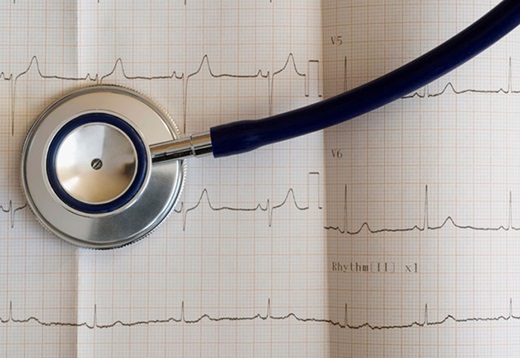Surprising Body Cues That Could Be a Heart Concern
The classic signs of heart trouble—chest tightness, pressure or pain—are far from its only signals. People often fail to connect other symptoms they’re experiencing to their actual cause: the heart. This can result in failing to get the help they need for an emergency heart issue, like heart attack or stroke, or a critical delay in getting possible heart disease diagnosed and treated.

“Most people know their bodies better than any doctor does. In general, if you constantly feel something isn’t ‘right’ or isn't what you’re used to, that warrants medical attention,” says Parag Joshi, M.D., a cardiology fellow with the Johns Hopkins Ciccarone Center for the Prevention of Heart Disease.
Your whole body can be involved in sending the message that something’s wrong with your heart.
Direct (but Surprising) Signs of Heart Problems
Many heart-related body cues are closely linked to inadequate blood flow through the arteries to the heart. But signs like these may not seem obviously connected to the heart.
Jaw and neck pain. Chest pain doesn’t always center on the heart. It’s of concern when it radiates to the jaw and neck from the chest.
Nausea and bloating. Women in particular often describe this kind of discomfort, which can include vomiting, before they feel chest pain.
Overall fatigue. When your heart can’t pump effectively, less blood flows to your lungs and your muscles. Shortness of breath and fatigue when doing everyday activities, such as climbing stairs or walking across a parking lot, is a red flag.
Q&A: What Signs of Heart Disease Can a Test Detect?
Testing can reveal markers for heart disease that have no visible symptoms, such as high blood pressure and high cholesterol. A coronary calcium scan provides a picture of buildup in the arteries. All these tests can help identify high-risk individuals who can be treated appropriately before they have a serious event, says Johns Hopkins expert Parag Joshi, M.D.
Johns Hopkins research has found that an ultrafast CT scanner can accurately sort out which people with chest pain need an invasive procedure, such as bypass surgery, to restore blood flow to the heart.
Less Direct Signs of Heart Problems
Some problems may or may not have clear links to heart disease but are worth a heart checkup, especially if you have other risk factors for heart disease.
Sleep apnea. This temporary collapse of an airway puts a halt to breathing during sleep and has been linked to high blood pressure and an increased risk of heart attack.
Trouble achieving or maintaining an erection. Though men often don’t connect bedroom problems to the heart, erectile dysfunction can be a very early sign of the arterial damage of heart disease. “A problem with your blood vessels in one area of the body is associated with blood vessel problems in another area,” says Joshi.
Cramping, aching or numbness in the calves when you walk. This kind of leg pain, which is felt when you exercise and stops when you stop, can be a sign of peripheral vascular disease (PVD), a circulation disorder. People with PVD often have atherosclerosis, the buildup of damaging plaque in the arteries.
Definitions
Arteries (are-te-rease): The blood vessels that carry oxygen-rich blood away from your heart for delivery to every part of your body. Arteries look like thin tubes or hoses. The walls are made of a tough outer layer, a middle layer of muscle and a smooth inner wall that helps blood flow easily. The muscle layer expands and contracts to help blood move.
Blood vessels (veh-suls): The system of flexible tubes—arteries, capillaries and veins—that carries blood through the body. Oxygen and nutrients are delivered by arteries to tiny, thin-walled capillaries that feed them to cells and pick up waste material, including carbon dioxide. Capillaries pass the waste to veins, which take the blood back to the heart and lungs, where carbon dioxide is let out through your breath as you exhale.
Risk factor: Anything that boosts your chances of getting a disease. For example, smoking is a risk factor for cancer, and obesity is a risk factor for diabetes.
Sleep apnea (ap-ne-ah): A disorder in which your breathing repeatedly stops or becomes very shallow as you sleep. Your breathing may pause anywhere from a few seconds to a few minutes. This ongoing condition disrupts your sleep, making you tired during the day and increasing your risk for heart problems, diabetes, obesity and driving or work-related accidents.





